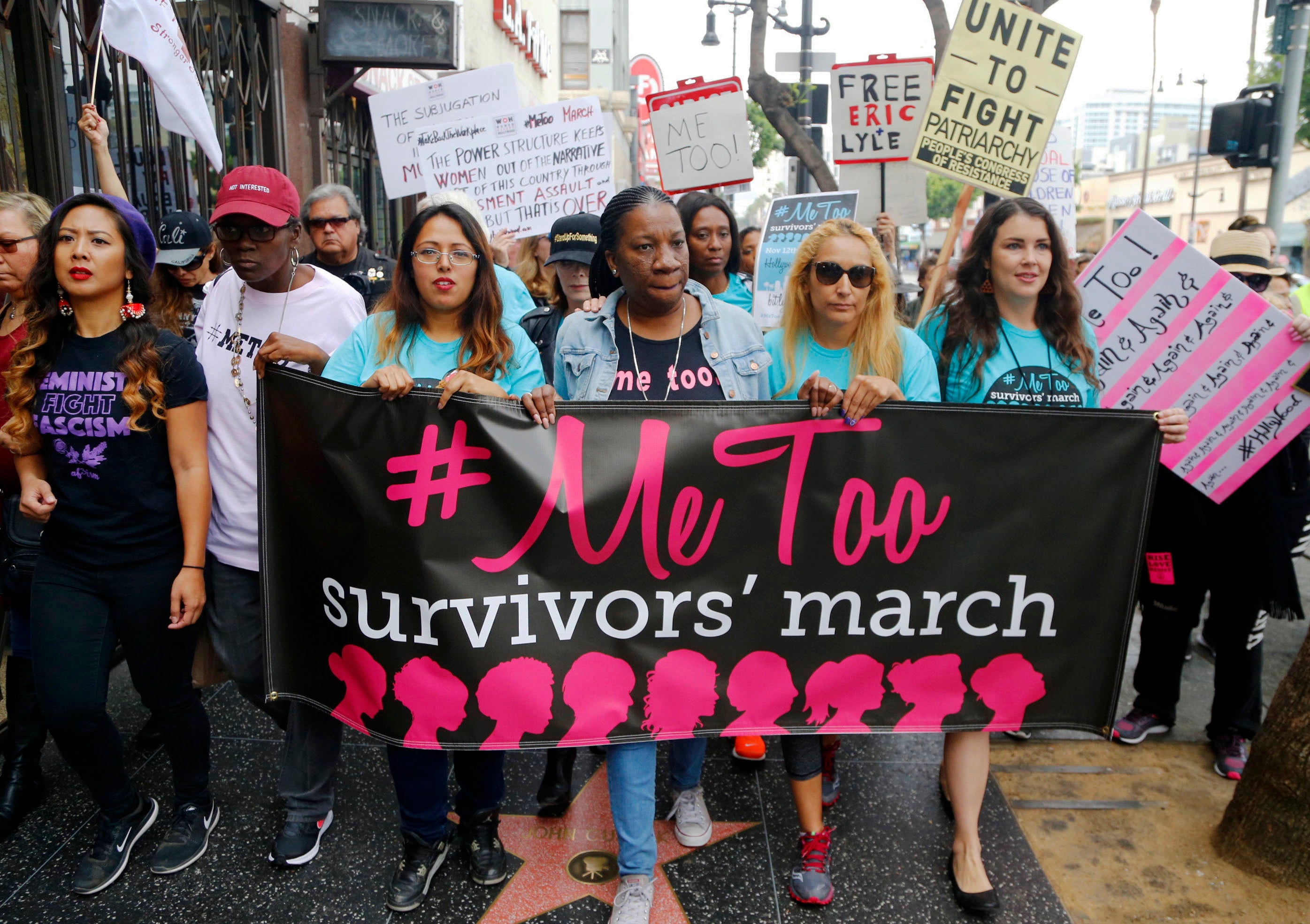MeToo: Taiwan rocked by wave of sexual harassment allegations sparked by Netflix show
Powerful dialogue from Netflix show inspires people to call out their abusers and harassers

Taiwan has been jolted by a wave of sexual harassment allegations that have led to the resignation of four ruling party officials and a public apology from the president.
Over the past fortnight, more than 90 people have spoken out against people in power across the self-governed island that has prided itself on gender equality and inclusivity.
The fresh bout of the MeToo movement ensued in Taiwan following the release of the political drama series Wave Makers on Netflix in late April. The plot revolves around sexual harassment at the workplace.
A scene from the series in which the protagonist and a senior party member promise to seek justice for a junior staffer sexually assaulted by a colleague has become the clarion call for the movement.
"Let's not just let this go, ok," the protagonist tells her junior. "We can't let things go this easily. Otherwise, we'll slowly wither away and die."
Shortly after the drama's release, a former staffer of the ruling Democratic Progressive Party (DPP), shared the quote before describing how she was sexually harassed at a work event.
The staffer alleged that when she reported her complaint to a supervisor, who was in charge of the party's women's affairs, she was advised to bury her claim.
"After many months, I thought I could let myself go. Recently, when I was looking at the candidates, I was overwhelmed countless times, and I cried until I almost died," she wrote on Facebook.
Her post opened floodgates of allegations against members of the ruling party, just months prior to the presidential elections.
Another former DPP staffer accused her male supervisor of verbally abusing and blocking her complaint about another male colleague's harassment.
Since then at least four top brass party members – national policy adviser Yan Chih-fa, DPP deputy director Lin Nan-ku, the deputy labour minister's secretary Tsai Mu-lin, and deputy secretary-general Hsu Chia-tien – have resigned from their posts, Focus Taiwan reported.
Mr Yen resigned and withdrew a libel suit he had filed only the day before against a former worker for a campaign group who had accused him of sexual harassment in 2018.
Taiwanese president Tsai Ing-wen responded swiftly to the allegations and apologised twice last week.
"As the president and former DPP chair, I'd like to apologise to the public again with the development of sexual harassment incidents by former party workers," wrote Ms Tsai in her Facebook post.
"Our society as a whole must educate ourselves again. People in sexual harassment incidents are victims," she added, vowing to draft a series of gender equality reforms based on international norms and strengthen existing reporting mechanisms.
The opposition KMT party also faced backlash after last week a journalist accused lawmaker Fu Kun-chi of forcibly kissing her at a press event in 2014. Mr Fu has denied the allegations.
The ongoing movement encouraged people beyond the political circle to call out their alleged abusers and harassers.
Some of the high-profile cases include Polish diplomat Bartosz Rys, who was accused of allegedly assaulting a Taiwanese think-tank researcher last year. Mr Rys denied the allegations, adding that the prosecutors had determined the charges were not substantiated and rejected the case.
Exiled Chinese democracy advocate Wang Dan earlier in June denied an accusation by a former Taiwanese political worker that he had sexually harassed him in a hotel room in New York nine years ago.
At least two younger men accused the former student leader of China's 1989 Tiananmen Square protests of sexual assault. One of those men launched a lawsuit alleging a rape attempt from Mr Wang.
One of the writers of the Wave Makers series accused eminent poet Bei Ling of sexual assault, BBC reported. She alleged he had groped and kissed her at his home. The exited poet, however, called her account a "fabrication".
Premier Chen Chien-jen over the weekend said he has instructed government agencies to propose revisions to three major laws to better address the issue of sexual abuse and harassment.
In addition to sharing their experiences on social media, people have come forward to file sexual harassment complaints through official channels, said Kang Ting-yu, an associate professor specialising in gender and media studies at Taiwan’s National Chengchi University.
“I know of multiple cases where they explicitly said they were inspired by the show,” she told CNN.
Subscribe to Independent Premium to bookmark this article
Want to bookmark your favourite articles and stories to read or reference later? Start your Independent Premium subscription today.

Join our commenting forum
Join thought-provoking conversations, follow other Independent readers and see their replies